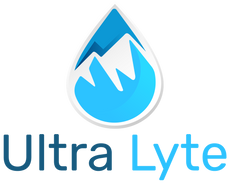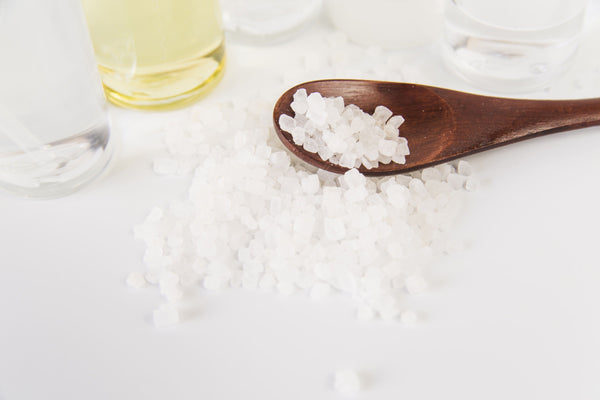
Essential Electrolytes: The Key to Your Body's Balance and Vitality

Electrolytes (Magnesium, Sodium, Chloride, and Potassium)
Electrolytes are electrically charged minerals in biological fluids such as blood, sweat, and urine. These electrolytes are sodium, potassium, magnesium, and chloride. They are essential in various physiological processes, particularly maintaining fluid balance and supporting neuron and muscle function. Electrolyte deficiency can cause muscle cramps, lethargy, and fatigue due to muscle function disturbance. It can also lead to irregular heartbeats, resulting in cardiovascular problems and potential complications in nerve signaling, thereby affecting the body's overall functioning.
Read on to find out how electrolytes can help you stay healthy.
Improve Hydration and Exercise Performance
Electrolytes contribute to appropriate hydration, one of their primary health benefits. Hydration is essential because it maintains body functions, regulates body temperature, and promotes cell health. Electrolytes aid in regulating fluid balance in the body, ensuring that cells receive a proper quantity of water. This balance is especially important during physical exercise since the body loses fluids through sweating. According to a study, sweat contains electrolytes, such as salt and potassium, as well as trace amounts of calcium and magnesium. With each liter of sweat, you lose approximately 1 gram of salt1. Electrolytes, including sodium, chloride, and potassium, are essential for replenishing lost minerals and fluids, preventing dehydration, and sustaining peak performance during exercise.
Enhance Muscle Strength and Endurance
Electrolytes have a significant impact on muscle function and contribute to both strength and endurance. Potassium, for example, is essential for smooth and controlled muscle contractions. Potassium deficiency increases the possibility of muscle spasms and decreases overall muscle performance. Electrolytes, such as sodium and chloride, are required to generate and distribute electrical impulses that regulate muscle contractions. These impulses ensure coordinated movement and efficient muscle function, promoting strength and stamina and preventing problems such as stiffness and muscle twitching2.
Improves Brain Function
Your nervous system's health heavily relies on the amount and balance of electrolytes. Chloride and sodium are essential for memory and cognitive function because they facilitate the transfer of electrical signals or messages between nerve cells in the brain. A drop in these electrolyte levels can disturb this signaling pathway, potentially causing problems with memory recall, concentration, and overall cognitive performance. Studies indicate that a low-salt diet may result in hyponatremia, defined by abnormally low sodium levels in the blood. They may contribute to conditions such as dementia or memory loss3. Proper electrolyte levels also maintain fluid balance, which ensures a well-functioning nervous system, contributing to cognitive function, reflexes, and overall neurological health.
Maintain Heart Health
Electrolytes play an important role in heart health by regulating cardiac rhythms and ensuring appropriate contraction. Potassium helps to reduce blood pressure, promoting vasodilation and supporting fluid balance in and around cells. Adequate potassium consumption can help to maintain healthy blood pressure and prevent cardiovascular risks. According to one study, people who consumed roughly 4,000 mg of potassium per day had a 49 percent reduced possibility of dying from heart disease than those who did not4. Magnesium also helps protect cardiovascular health by relaxing blood vessels and maintaining a regular heartbeat5.
Maintain Blood Sugar LevelElectrolytes play an important role in managing your blood sugar levels. When a cell generates energy in its mitochondria, potassium channels tell the body to make insulin. Including more potassium in your diet might assist in reducing blood sugar. Studies found that insufficient potassium is linked to elevated insulin and glucose levels, indicators of diabetes6.
Reduce Stress and Anxiety
Electrolytes have the added benefit of lowering stress and anxiety. Magnesium plays an essential role in reducing anxiety. According to research, magnesium can help alleviate anxiety symptoms. It also plays a vital role in how your body responds to stress7. On the other hand, constant stress can result in magnesium levels dropping, which can make anxiety and depression more likely.
May Treat Headaches
Electrolytes can be helpful when headaches are triggered by dehydration. About 10 percent of individuals suffer from dehydration-induced headaches. These headaches can result from a lack of water, a deficiency of electrolytes, or both8. Magnesium and sodium are important in relieving such headaches. When these electrolytes are not in proper balance, it can lead to problems like exhaustion and tiredness.
Enhance Digestion
Electrolytes improve the digestive process. Muscle tissue within your intestines works involuntarily, which means it moves on its own. These muscles contract and relax to aid in nutrient absorption and refuse elimination. Potassium acts as a supplement for these muscles, causing them to contract smoothly. However, if you lack potassium, your digestion may not function properly. Therefore, consuming potassium-rich foods and electrolyte supplements is advisable to keep everything operating well9.
Improve Sleep Quality
Electrolytes help to promote deeper and quicker sleep. Melatonin, the sleep hormone, promotes faster sleep onset and longer sleep duration. It contributes to a balanced mood and restful sleep by regulating melatonin release from the parasympathetic nervous system. Melatonin and magnesium work together to enhance relaxation, allowing for a more peaceful and refreshing sleep.
Food Sources of ElectrolytesElectrolytes can be obtained from various foods to support body functions. Sodium is present in pickled foods, cheese, and common table salt. Chloride is predominantly obtained from table salt. Potassium is abundant in fruits and vegetables such as bananas, avocados, and sweet potatoes. Magnesium is found in seeds, nuts, and dairy products11.
Most people require the following amounts of electrolytes in their diet each day for general health12:
- Sodium: 1,500 mg
- Potassium: 4,700 mg
- Magnesium: 420 mg for men, 320 mg for women
- Chloride: 2,300 mg
Electrolytes play a vital role in maintaining overall health and well-being. These electrically charged minerals, including sodium, potassium, magnesium, and chloride, contribute to various physiological processes. From supporting hydration and exercise performance to enhancing muscle strength, endurance, and brain function, electrolytes are fundamental for ideal performance and cognitive health. They are also vital in maintaining heart health, regulating blood sugar, reducing stress, and even alleviating certain headaches. Including a variety of electrolyte-rich foods in your diet is key to meeting daily requirements and promoting a balanced, healthy lifestyle.






